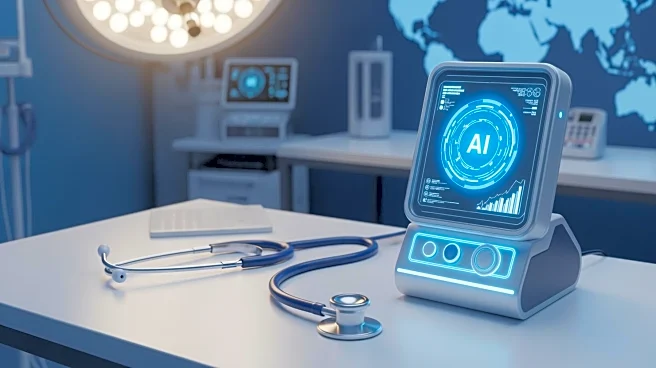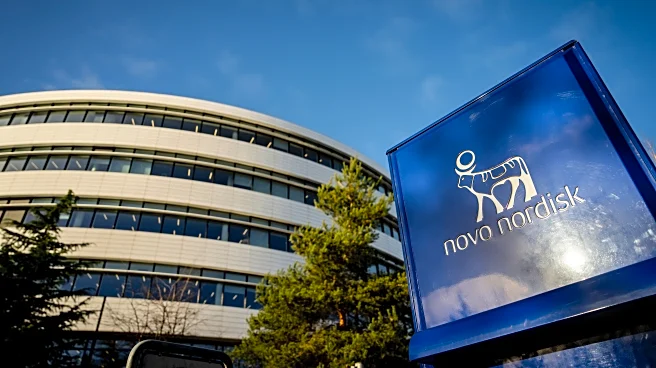What's Happening?
Artificial intelligence is being utilized to screen for tuberculosis (TB) in low-income countries where medical specialists are scarce. In Mali, a technician named Diakite Lancine uses an X-ray machine and AI to quickly diagnose TB, significantly reducing
the time needed for diagnosis. The Global Fund has invested nearly $200 million in AI-enabled TB screenings, leading to a notable increase in detected cases. However, experts like Erwin John Carpio from the Philippines College of Radiology urge caution, emphasizing the need for regulations and quality control to ensure AI's responsible use in healthcare.
Why It's Important?
The use of AI in TB screening is crucial as it addresses the shortage of medical professionals in low-income regions, potentially saving thousands of lives by providing rapid diagnosis and treatment. This technological advancement could transform global health, particularly in areas with limited healthcare access. However, the lack of regulatory frameworks in many countries poses risks, as AI models need to be calibrated for local populations to ensure accuracy. The success of AI in healthcare could lead to broader adoption, but it must be balanced with vigilance to prevent misuse or errors.
What's Next?
As AI technology continues to be integrated into healthcare, there will likely be increased calls for establishing regulatory frameworks to govern its use, especially in low- and middle-income countries. Stakeholders, including governments and healthcare organizations, may need to collaborate to develop guidelines and ensure AI systems are used safely and effectively. The ongoing investment in AI by organizations like the Global Fund suggests a commitment to expanding its use, but continuous monitoring and adaptation will be necessary to address emerging challenges.

















